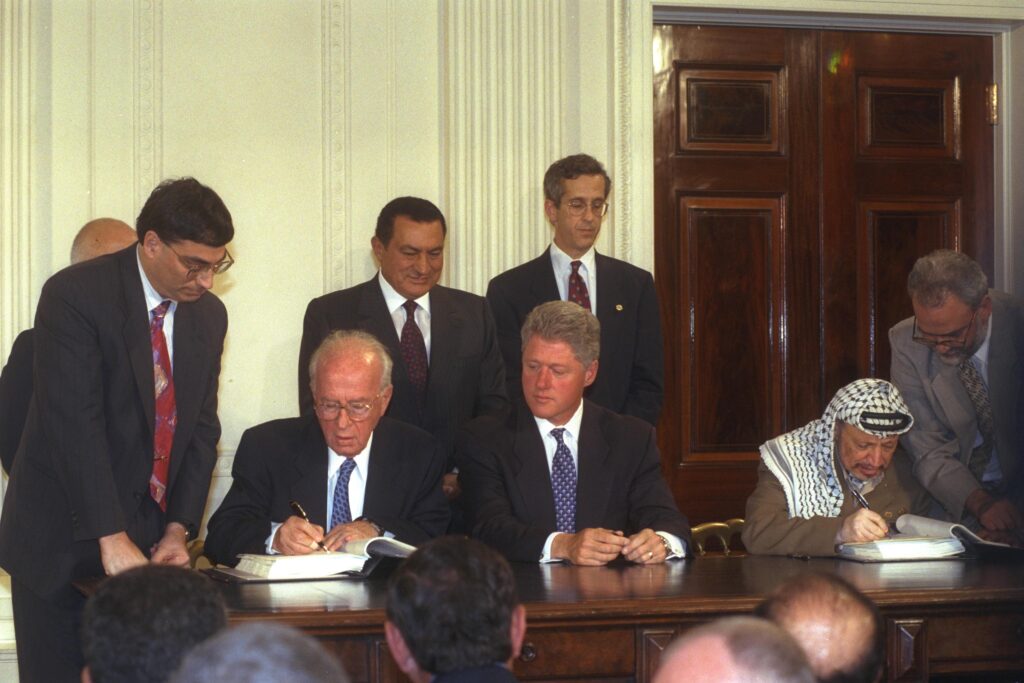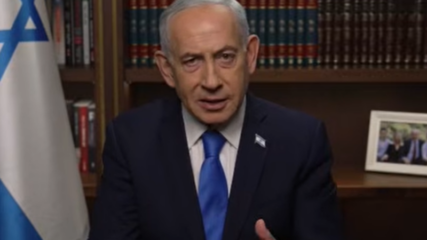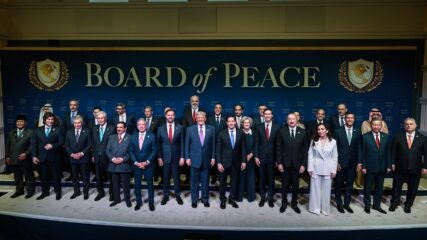This was the fourth Palestinian-Israeli Agreement signed that broadly extended Palestinian self-governing arrangements throughout the West Bank and the Gaza Strip. No Palestinian state was promised, essentially only putting substance on the Palestinian autonomy agreement that Menachem Begin signed with Anwar Sadat in the 1978 Camp David Accords.










